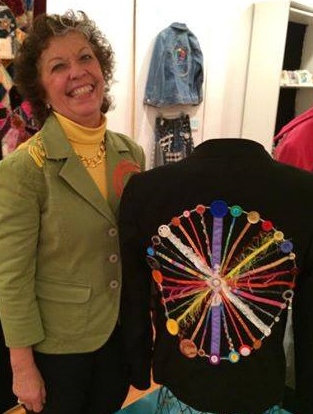Many highly sensitive, creative, gifted or twice exceptional people struggle to find and keep their  balance emotionally. It’s not that they don’t have emotions or aren’t in touch with their emotions, but they tell me that they are often find it challenging and even overwhelming to find ways to cope with them and manage them. But CASIGYs can overcome this overwhelm. Here’s how CASIGYs Can Become Social-Emotional ACES!
balance emotionally. It’s not that they don’t have emotions or aren’t in touch with their emotions, but they tell me that they are often find it challenging and even overwhelming to find ways to cope with them and manage them. But CASIGYs can overcome this overwhelm. Here’s how CASIGYs Can Become Social-Emotional ACES!
The top three emotional and mental health concerns of gifted people are
- Sensitivity
- Anxiety
- Depression
according to research done and published by SENGifted.org. I have found the same to be true in my counseling and consulting practice.
 Why are social & emotional needs so crucial and yet so difficult for so many Highly Sensitive, Gifted or Twice Exceptional People, AKA CASIGYs™, (Creative, Acutely Aware, Super- Sensitive, Intense, and/or Gifted You-s)? Having high sensitivity also means, among other things, that you or your CASIGY child have both a more perceptive and a more reactive Central Nervous System. This means that you pick up on things that most others miss, and also that your body reacts more dramatically to *whatever it is* than do the bodies of most people around you. It can be disconcerting to perceive things that others around us do not. This phenomenon can create the inner question, “What’s real and what’s not real?” for the person who perceives things that no one else does or will admit to.
Why are social & emotional needs so crucial and yet so difficult for so many Highly Sensitive, Gifted or Twice Exceptional People, AKA CASIGYs™, (Creative, Acutely Aware, Super- Sensitive, Intense, and/or Gifted You-s)? Having high sensitivity also means, among other things, that you or your CASIGY child have both a more perceptive and a more reactive Central Nervous System. This means that you pick up on things that most others miss, and also that your body reacts more dramatically to *whatever it is* than do the bodies of most people around you. It can be disconcerting to perceive things that others around us do not. This phenomenon can create the inner question, “What’s real and what’s not real?” for the person who perceives things that no one else does or will admit to.
Being aware of things that most other people are not aware of begs for us to learn to trust ourselves deeply and to “see that we see, hear what we hear and know what we know”. But how does a highly sensitive person do this? Society teaches us to question what we see, hear and know and to defer to what those who are in authority over us is officially see, hear and know. This starts when we are children with deferring to our parents and teachers. In adulthood, it is often our bosses at work. This may become so strongly ingrained within us that we no longer have any sense of what we really see, hear or feel. And to regain this inner connection can entail a long mind-body learning process. It also may require us to be a bit subversive in order to acknowledge and honor what we see, hear or otherwise perceive when others, especially those in authority over us, do not. This often takes courage and willingness to forge our own pathways.
That is easier said than done, especially when modern civilization (no matter what continent or country we live in) has a taboo against having or expressing emotion. At the same time, our sensitivity may heighten our perception of both our own and others’ emotions. This creates a double bind for everyone, especially those who have a more perceptive and a more reactive Central Nervous System. We need to express what’s going on inside of us, but we know it’s not acceptable to do so. So we try to squelch or fend off our emotions. Or we stuff them away, as if we were wearing an invisible backpack, and we put our emotions there.
This breeds emotional volcanoes or floods when this invisible  backpack overflows inside of us and erupts all over us and everyone around us. This can leave us in the position of having to pick up the pieces and clean up the mess of the aftermath following such an eruption. This inner volcano can also erupt when the emotions we don’t have the permission to feel or express build up inside of us to the place where we can no longer contain them, and they explode or flood all over us and over everyone around us. This can show up in life in many ways. A nine year old boy may cry when he get pushed around in recess queue. A 13 year old girl may cry when she doesn’t perform as well as she wants to in her school’s Talent Show. As an adult, you may raise your voice in a meeting at work when you feel backed into a corner, or yell at your children who are acting out at home. The aftermath of such events for a CASIGY™ may be severe embarrassment and self-recrimination, anxiety and depression. Many CASIGYs tell me that they just want to hide or to disappear from the face of the earth in their sense of humiliation.
backpack overflows inside of us and erupts all over us and everyone around us. This can leave us in the position of having to pick up the pieces and clean up the mess of the aftermath following such an eruption. This inner volcano can also erupt when the emotions we don’t have the permission to feel or express build up inside of us to the place where we can no longer contain them, and they explode or flood all over us and over everyone around us. This can show up in life in many ways. A nine year old boy may cry when he get pushed around in recess queue. A 13 year old girl may cry when she doesn’t perform as well as she wants to in her school’s Talent Show. As an adult, you may raise your voice in a meeting at work when you feel backed into a corner, or yell at your children who are acting out at home. The aftermath of such events for a CASIGY™ may be severe embarrassment and self-recrimination, anxiety and depression. Many CASIGYs tell me that they just want to hide or to disappear from the face of the earth in their sense of humiliation.
How can a CASIGY overcome this super-sensitivity, anxiety and depression? Over the years, I  have found that there is a process that helps many CASIGYs to cope with their sensitivity and overcome their anxiety and depression. I share it with my counseling clients. I also share it in my online course, How CASIGYs can Become Social and Emotional ACES. An Ace, of course, is someone who is highly skilled at something, so a Social & Emotional ACE is a master of social and emotional skills.
have found that there is a process that helps many CASIGYs to cope with their sensitivity and overcome their anxiety and depression. I share it with my counseling clients. I also share it in my online course, How CASIGYs can Become Social and Emotional ACES. An Ace, of course, is someone who is highly skilled at something, so a Social & Emotional ACE is a master of social and emotional skills.
I have found that by learning and continuing to practice these skills, CASIGYs can become highly skilled Social and Emotional ACES. This enables them to
- Gain perspective on the problems they face because of their super-sensitivity
- Gain an understanding of themselves and also of others
- Gain skills to balance and express their emotions effectively
- Gain skills to get their social and emotional needs met constructively
- Gain skills to establish and maintain social relationships.
These are the things that my clients experience, and also that participants in the ACES program report back to me that they experience as a result of applying what they are learning.
You, too, can have these results in your life and in your children’s lives.
You can find more info about the online CASIGY™ ACES Social-Emotional Empowerment Program here.
ps. Right now, until midnight, Sunday April 15, 2018 MDT (GMT-6) the online CASIGY™ ACES Social-Emotional Empowerment Program is on sale at 51% off its usual price. I encourage you to check it out now, before this sale is over…..
If this doesn’t interest you or fit for you, I encourage you to keep reading my website and my blog, and use the search function in the right sidebar to find other articles that share how CASIGYs can develop social and emotional skills. For example, you may like this one: https://therapistforsensitiveandgifted.com/pandoras-box-of-emotions/

